Jun 3, 2025 11:25 AM
In Memoriam: Al Foster, 1943–2025
Al Foster, a drummer regarded for his fluency across the bebop, post-bop and funk/fusion lineages of jazz, died May 28…
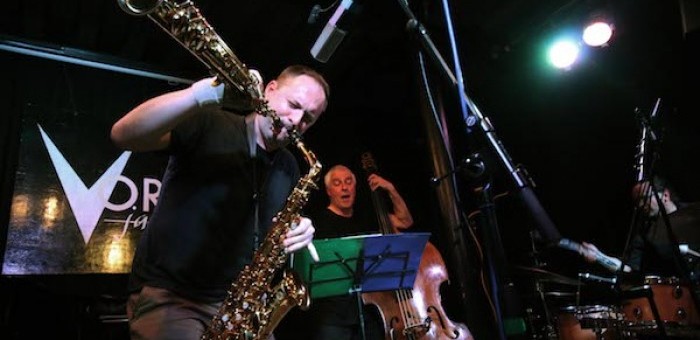
Jürg Wickihalder (left), Barry Guy and Lucas Niggli perform at Vortex Jazz Club in London April 16 as part of Intakt Festival
(Photo: Inès Elsa Dalal)The Swiss label Intakt Records, founded by Patrik Landolt, has been releasing high quality improvised (and often composed) music since 1986, operating out of Zürich. In 2012, Intakt took over The Stone in New York, for six nights. Now, at London’s Vortex Jazz Club, Landolt and his collective team are in town for 12 days, presenting at least two sets every evening. Many of their key artists are appearing, mostly from Switzerland and the U.K., but with a significant African complement.
The opening session on April 16 was dedicated to the veteran bassist Barry Guy, a musician equally immersed in composition and free improvisation, with his roots tangling back to the dawning of this scene in late-1960s London. Celebrating Guy’s 70th birthday, the concert presented four sets, each of them highlighting different musical zones, alongside various long-term colleagues. Two of Guy’s oldest playing partners were on hand: pianist Howard Riley and saxophonist Evan Parker.
The first set featured another long-running partnership, combining marriage and music, as Guy and his wife, the Baroque violinist Maya Homburger, moved through a repertoire that spanned centuries-old hymnal music, Austrian composer Heinrich Ignaz Franz von Biber, and some more recent Guy compositions. (Guy and Homburger live just outside of Zürich.)
Even though the pieces were composed, this pair imbued them with a vitality that revealed a love of improvisation, with a singing, sweeping precision, a kind of dynamic, sensitive violence. Drummer Lucas Niggli anticipated the next set by guesting briefly, including a spirited improvised duet with Guy, while Homburger switched to a new tuning.
The Howard Riley Trio has included Guy from its very beginning, in 1967, although there has been a deliberate turnover of drummers across the decades. Now, for this ultra-rare appearance, the Swiss stickman Niggli completed the lineup. He moved from palms to brushes to bullrushes, always maintaining sensitivity, Guy’s five-string bass allowing for an extra toughness when he hits low, and a sweet-voiced precision when aiming high.
The trio billowed a roiling mist, out of which Riley’s flourishes emerged, phrases steadily accruing by stealth. Guy scribbled with an iron fist, the three players having a staggered relationship, as dominance passed between them. Niggli picked up soft mallets to assist in the suspension, a probing tension as Riley reached inside his piano, or compressed phrases into a microscopic handful of keys, making winding, tightly phrased explorations.
Guy has also been working beside Evan Parker since the mid-1960s, when they met on the Spontaneous Music Ensemble scene. Their duo set highlighted Guy’s use of implements to extend his vocabulary, the pair operating at a level of extreme tension and intensity throughout, with an intuitive rapport built up over decades.
At points, Guy would bow harshly, while Parker spouted rivulets on tenor, with sudden outbreaks of mellow tenderness. Guy used his wah-wah pedal to reserve full volume for the moments when the pair began tussling in earnest. The bassist bowed with a knitting needle at one point—inserted between his strings—then engaged in fast taps with a drumstick, stitching high notes with great dexterity, zooming his fingers up the neck to create speed-sliding pitches. The duo continued each other’s conversations, Guy applying a paintbrush, making soft scratches, while Parker opened up a circular-breathing tunnel.
The night closed with a newer formation, the Beyond Trio with Guy, Niggli and saxophonist Jürg Wickihalder, who added to the vigorous delivery already expected from his partners, rattling streams of intricate notes off on his soprano, making sudden racing blurs. Niggli used hard drumsticks, splinters flying dramatically, one of which landed neatly on Guy’s shoulder.
“I was listening to Barry’s music in my mother’s womb,” Wickihalder announced, perhaps making Guy feel like a true veteran. Then he blew into his bell-end and Niggli whipped out his egg-whisk, sharp flecks of sound turning into a low, throaty emission from the “right” end of the soprano.
Wickihalder’s tune “The Alps,” inspired by his upbringing in the Alps, offered a lyrical interlude, but eventually hiked into a two-saxophone Roland Kirk-style chorus. One of Wickihalder’s main influences is Steve Lacy, whose composition “Art” closed the set, cycling its progressions with an angular insistence.
As the first of 12 Intakt nights, this one is surely secure already in its ranking among the season’s finest. These last two sets were equally dynamic, the first for its improvised tension, the second for its careening, complicated arrangements. DB
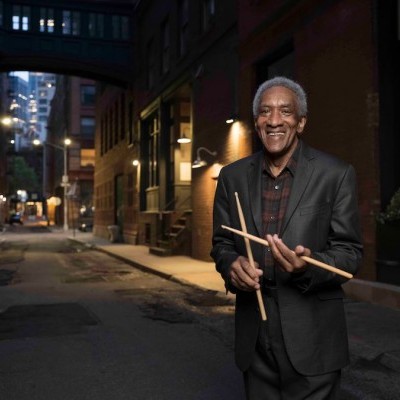
Foster was truly a drummer to the stars, including Miles Davis, Sonny Rollins and Joe Henderson.
Jun 3, 2025 11:25 AM
Al Foster, a drummer regarded for his fluency across the bebop, post-bop and funk/fusion lineages of jazz, died May 28…
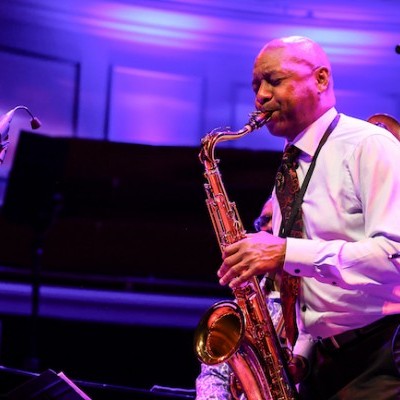
“Branford’s playing has steadily improved,” says younger brother Wynton Marsalis. “He’s just gotten more and more serious.”
May 20, 2025 11:58 AM
Branford Marsalis was on the road again. Coffee cup in hand, the saxophonist — sporting a gray hoodie and a look of…
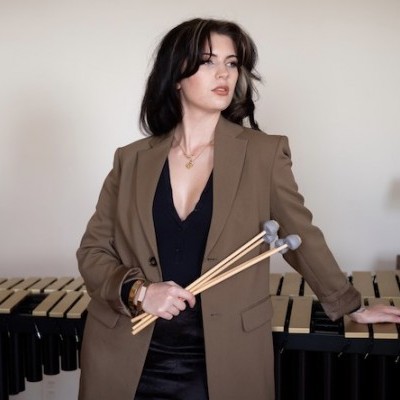
“What did I want more of when I was this age?” Sasha Berliner asks when she’s in her teaching mode.
May 13, 2025 12:39 PM
Part of the jazz vibraphone conversation since her late teens, Sasha Berliner has long come across as a fully formed…

Roscoe Mitchell will receive a Lifetime Achievement award at this year’s Vision Festival.
May 27, 2025 6:21 PM
Arts for Art has announced the full lineup for the 2025 Vision Festival, which will run June 2–7 at Roulette…
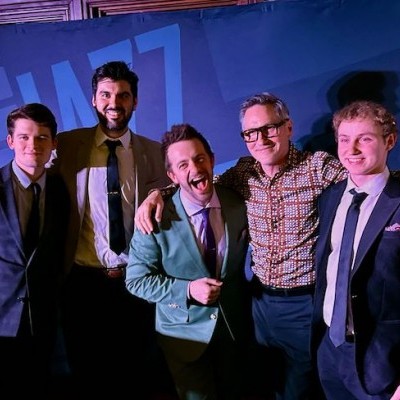
Benny Benack III and his quartet took the Midwest Jazz Collective’s route for a test run this spring.
Jun 3, 2025 10:31 AM
The time and labor required to tour is, for many musicians, daunting at best and prohibitive at worst. It’s hardly…